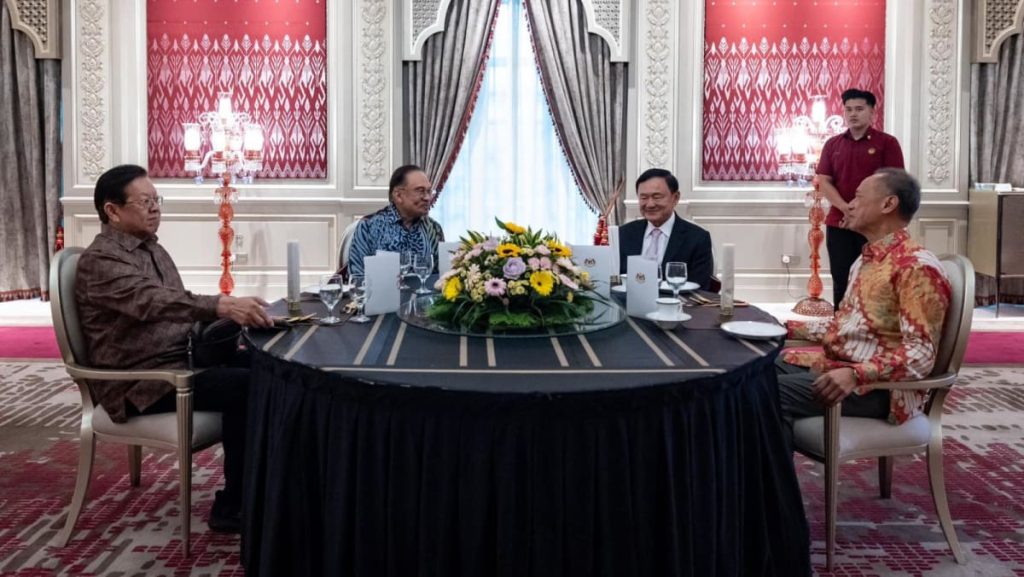Thaksin Shinawatra’s Controversial Appointment and Anwar Ibrahim’s Cryptocurrency Explorations: Navigating Southeast Asia’s Political and Economic Landscape
The political landscape of Southeast Asia is constantly evolving, with recent events highlighting both the complexities of regional dynamics and the forward-looking ambitions of individual nations. The appointment of former Thai Prime Minister Thaksin Shinawatra as an advisor to the Cambodian government has drawn considerable attention, given his past convictions for corruption and abuse of power in Thailand. While the Cambodian government has not officially commented on the reasons behind this appointment, analysts suggest that Thaksin’s extensive knowledge of the region’s political intricacies and his established network of connections, particularly within Myanmar, may have played a significant role. This appointment underscores the fluidity of political relationships in Southeast Asia, where past controversies may not necessarily preclude future collaborations.
Concurrent with this political development, Malaysian Prime Minister Anwar Ibrahim has embarked on a proactive exploration of cryptocurrency regulation and its potential impact on the nation’s financial landscape. During a recent official visit to Abu Dhabi, Anwar engaged in discussions with the UAE government and cryptocurrency exchange Binance, demonstrating his commitment to understanding the evolving world of digital finance. This proactive approach reflects Malaysia’s ambition to position itself at the forefront of technological innovation in the financial sector, recognizing the transformative potential of cryptocurrencies and blockchain technology.
Anwar’s emphasis on proactively engaging with these emerging technologies underscores a broader shift in Southeast Asia towards embracing digital innovation. Recognizing the rapid advancements in artificial intelligence and blockchain technology, Anwar has expressed the urgency of adapting to these changes, emphasizing that Malaysia cannot afford to remain passive while other nations forge ahead. This proactive stance is indicative of a broader regional trend towards embracing digital transformation as a catalyst for economic growth and development.
The Malaysian government’s consideration of drafting a comprehensive policy on digital finance marks a significant step towards integrating cryptocurrencies and blockchain technology into the national financial framework. This move would not only legitimize the use of cryptocurrencies within Malaysia but also create a regulatory framework to manage the associated risks and opportunities. By engaging with industry leaders like Binance, the Malaysian government aims to gain insights into best practices and potential challenges, ensuring a well-informed and effective regulatory approach.
The potential recognition of cryptocurrencies in Malaysia reflects a growing global trend towards accepting digital assets as a legitimate part of the financial ecosystem. While concerns around volatility and regulatory oversight persist, the underlying technology, blockchain, offers transformative potential for various sectors, including finance, supply chain management, and governance. Malaysia’s proactive approach positions the nation to capitalize on these opportunities and potentially become a regional hub for digital finance innovation.
In conclusion, recent developments in Southeast Asia highlight the dynamic interplay of political maneuvering and technological advancements. Thaksin’s advisory role in Cambodia, despite his controversial past, underscores the pragmatic nature of regional political relationships. Meanwhile, Anwar Ibrahim’s focus on cryptocurrency regulation reflects Malaysia’s ambitious vision for a digitally driven future, showcasing the nation’s proactive approach to embracing technological innovation and its potential to reshape the financial landscape. These developments, taken together, paint a picture of a region in transition, navigating complex political realities while simultaneously embracing the transformative possibilities of the digital age.

